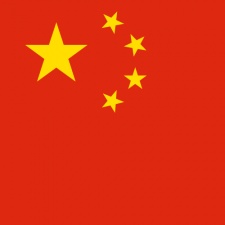The games industry moves quickly, and we don't always get a chance to put our thoughts across about every story that breaks.
As such we've created a weekly digest where members of the PocketGamer.biz team can share their thoughts on some of the more interesting things that have happened in mobile gaming over the past week.

Blizzard are suspending game services in China
China is one of the biggest mobile markets in the world, but also one of the hardest to break into. The strict censorship laws and recent pause in game licensing has made it more difficult than ever to successfully release a game in the country, despite the potential rewards of doing so.
The end of the agreement between NetEase and Blizzard is definitely big news, but while it will see a significant loss of revenue for NetEase, I’m not so sure the same holds true for Activision Blizzard. The company is well placed to find an alternative publisher within China, and with a range of popular titles like Hearthstone, World of Warcraft, and Overwatch 2 up for grabs, it’s likely that many publishers will be interested in striking a deal. As such, while this may seem like a major issue for Chinese gamers, I don’t anticipate a long term loss of these games within the country - instead, I think that Blizzard will strike a deal with another publisher, maintaining its place within China’s market.

Riot Games and Ubisoft to collaborate in preventing toxic behaviour in games
Ubisoft and Riot Games coming together to combat online toxicity with their “Zero Harm in Comms” research initiative is an interesting one, as a lot of people are pointing out on social media that it comes across as slightly hypocritical, or at the very least a case of skewed priorities, for Ubisoft and Epic Games to concentrate on something like this when criticism is still being levied at their corporate culture. It may have noble intentions, but for many people it looks more like damage control.
The fact is, as many people pointed out, a lot of Ubisoft and Riot Games’ multiplayer titles are built around a hypercompetitive and antisocial atmosphere that, although it doesn’t encourage toxicity, creates the perfect environment for it. League of Legends is infamous for this, for many people it’s an inextricable part of the game and its reputation. To the point that for some people, enduring and overcoming abuse is as much a part of the match as the play itself.
The best way to discourage toxicity is not to heavily moderate your playerbase, but to create a system and way of playing that encourages meaningful and healthy interaction. But that’s not nearly as simple in concept as trying to filter out what people say and do. Even if the latter is virtually impossible when it comes to practice. Of course, at this stage it’s just ‘research’, so until we find out what they’re going to do with the information gathered, it’s all a bit up in the air. But whatever it is, it’ll need to be a lot more fundamental than chat censoring.

NetEase and Blizzard are suspending game services in China
As to whether we or anyone will ever get to know the real inside story of Activision Blizzard under its incumbent and controversial CEO Bobby Kotick is highly debatable, but the clouds of rumour cries of foul play continue to bluster as stormily as ever around the beleaguered King of King. This week we’ve not only seen the ongoing ingrained Actiblizz sexual harrasment issues resurface (with evidence suggesting that management were aware of the issue but chose to do nothing), prompting a rebuttal statement from the board under Kotick’s command, but Activision Blizzard have been forced to withdraw their games from China, doubtless costing the empire millions in lost revenue. Normally such moves would be squarely blamed upon the fickle Chinese gaming laws whose moveable rulebook is even more opaque than Apple’s. But when the boss of Chinese partner NetEase goes public to say that “One day, when what has happened behind the scenes can be told, developers and gamers will have a whole new level understanding of how much damage a jerk can make,” one has to question as to just who that jerk might might be… I guess we’ll just have to wait for the movie to find out. Is Danny DeVito busy right now?

Zynga subsidiary Rollic acquires hypercasual games studio Popcore
Take-Two made one hell of a deal when it acquired Zynga back in May. Not only was there an almost immediate (in financials terms) payoff for them, as Take-Two are now mobile-first as a result, but their new-fangled mobile division appears to be making smart decision after smart decision.
Zynga was a massive independent name for a long time, but sometimes companies come along, acquire, absorb and dissolve entities - EA was notorious for this, and nobody knew if Take Two had similar intentions. It seems to be quite the opposite here, Zynga appears to have been brought in, given a little pat on the back and a big wallet and told to just crack on with what it was already up to. Zynga, and through it Rollic, have doubled down in recent months with their hypercasual intent, picking up mobile growth company Storemaven and now acquiring Popcore, an established hypercasual studio.
Zygna was already reporting increased revenue prior to the acquisition, the acquisition seems to have turbo-boosted their ambitions. It remain, as much so as before, ones to watch.

Noodle Cat Games raises $4.1m in funding to support worker-friendly practices
This studio was founded by ex-Epic devs, so people who are more than familiar with how much pressure there can be when working for successful companies in a competitive industry. The fact that they see the need to implement these sorts of practices speaks volumes about the conditions of employees across the sector.
There has been a widespread trial of the four day week recently, including developer Hutch, which has proved to be a successful strategy across the board thus far. As expected by many, a longer weekend doesn't make people less productive, but more. Why? Because they are less burned out, have more time to spend outside of work, and feel valued and trusted by their employers - making them more inclined to give their all and pull together as a team.
The fact that businesses based around this model, and these principles, has to send out a powerful message to others, that there is an understanding of the need for change, and the willingness to back it. Let's hope it keeps going the way it is headed and creates a much happier, healthier and chilled out industry overall.





















